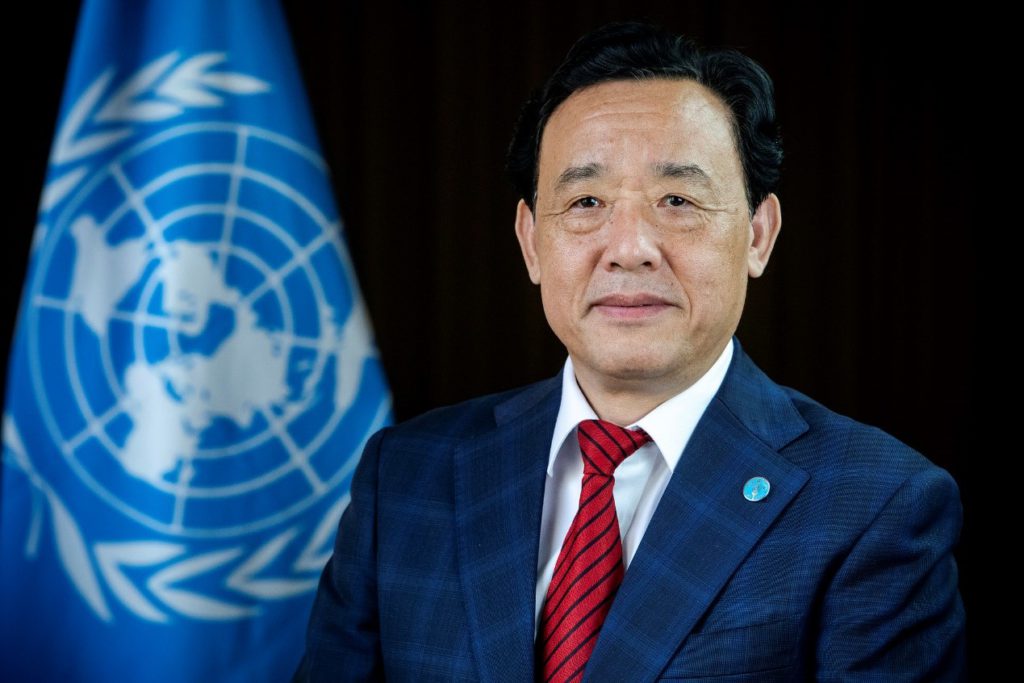This year’s World Food Day celebrates one of the planet’s most precious resources:
water. It’s essential to life on Earth. It covers the majority of the planet’s surface,
makes up over 50 percent of our bodies, helps keep us fed, supports livelihoods and
is central to achieving the 2030 Agenda for Sustainable Development and the
Sustainable Development Goals (SDGs). So how should we approach the complex
challenge of shielding our existing freshwater resources and aquatic food systems
from pollution and the impacts of the climate crisis, while ensuring that people have
equal access to water?
With about 70 percent of all freshwaters going to agriculture, changing the ways we
produce our food, fiber, and other agricultural products is the most crucial task. It is
also where failure to act will have the gravest consequences.
Freshwater is not infinite, and we need to stop taking it for granted.
Unless we act urgently, we are on course to increase our water use by more than a
third by 2050 globally, given our planet’s growing population. That means,
collectively, we risk reaching a point of no return.
Rapid population growth, urbanization, industrialization, economic development,
and the climate crisis have all taken a toll on our water resources. Combined with
water pollution, over-extraction and lack of coordinated management, this creates a
complex mix of overlapping challenges.
Increased extreme weather events, drought and flooding are stressing our
ecosystems, with daunting consequences for global food security. Smallholder
farmers, particularly the poor, women, youth, Indigenous Peoples, migrants, and
refugees, are the most vulnerable.
Approaching a complex challenge
At the heart of the balancing act to address these combined challenges must be
securing sufficient water for agriculture, while reconciling the competing water
needs of other economic activities, especially as urbanization accelerates.
Good governance is crucial for sustainable and equitable water allocation, through
an integrated and inclusive approach with all partners.
Investment in innovative, efficient water management practices is vital, including in
modern irrigation and storage technologies and science-based solutions to address
water scarcity and harnessing flooding; so that we are building a water-saving and
resilient society, including through managing more effectively the water-food-energy
nexus.
Action on the ground
We can and are working to make these things happen.
For example, in the Sahel FAO is providing mechanization opportunities to farmers to
improve their water infrastructure and is supporting rural women and their
households to access water.
Globally, irrigated land produces 40 percent of food from 20 percent of arable land –
yet it remains an untapped potential.
To help deliver on this potential, FAO is developing a global irrigation needs and
potential mapping methodology, and we look forward to working with countries to
implement it.
Appropriate financing mechanisms and investments, at the right and big scale, are
key to building and maintaining capital-intensive infrastructure.
Resilience-based solutions are key. Prioritizing green and blue infrastructure to
promote agriculture and fisheries respectively can enhance water quality, maintain
biodiversity and provide other benefits to agrifood systems and rural areas.
In Sri Lanka and Zambia, for example, FAO is piloting multifunctional paddy fields for
fish and shrimp farming, in addition to rice production.
All actors must be on board
We can and must do more, together, with all the various actors making their distinct,
yet inter-related contributions.
Governments need to design science- and evidence-based policies that capitalize on
data and innovation, and coordinate across sectors to plan and manage water
better. Water, energy and food are inextricably linked, and for policies to be
successful, it’s important they manage often-competing interests without
compromising the health of our ecosystems.
Our farmers need to become agents of water management and be equipped with
the right tools to perform that function sustainably. Farmers, forest-dependent
people, livestock producers and those working in the blue economy of fisheries and
aquaculture already manage water on a daily basis.
Businesses need to become water stewards. That means making concrete
commitments to improving water use efficiency and reducing pollution across the
supply chain. This doesn’t just benefit nature and society, but businesses too. Taking
water governance seriously can boost their reputation and profits and help them
avoid risks that water scarcity, floods and pollution could pose to operations in the
future.
Let me underline again that all of us need to stop taking water for granted. Making
informed decisions about the products we buy, wasting less water and preventing
flooding disaster and pollution are easy ways for everybody to contribute to positive
action for a future of prosperity for people and the planet. They are central to
achieving what we at FAO refer to as the Four Betters: better production, better
nutrition, a better environment and a better life – to ensure no one is left behind.



